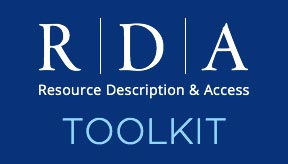New Products Support the Improved RDA Toolkit

RDA: Resource Description and Access users experienced the long-awaited elevation of the beta RDA Toolkit to official status on Tuesday, December 15, 2020. The new Toolkit had been undergoing restructure and redesign through the “3R Project” aimed at bringing the RDA standard into alignment with the IFLA (The International Federation of Library Associations and Institutions) Library Reference Model and the RDA Toolkit into compliance with current accessibility standards. RDA and RDA Toolkit are now optimized for use in a linked data environment and for international exchange of bibliographic data.
Christine Oliver – Head of Metadata and Processing at the University of Ottawa and Chair of the RDA Board – remarked Tuesday that “this milestone is the culmination of three years of intense work by many experts around the world. The new RDA Toolkit is ready, with new features and content for improved metadata creation. The redesign brings many important advancements, and positions cataloguing communities well for the future while also continuing to value past practices.” She advised RDA users to consider their own pace for transitioning to the new version: “During the transition period, subscribers can access both the new RDA Toolkit and the original one. You and your cataloging community decide how soon to move to the new RDA Toolkit.”
Kathy Glennan, Chair of the RDA Steering Committee, further explained why catalogers are encouraged to determine their own scope and timeframes for using the new RDA Toolkit: “As the first implementation of the IFLA Library Reference Model, the new RDA Toolkit has become more international in scope. With a wide range of data elements, options, and recording methods available, cataloging communities now have greater flexibility in applying the standard. The RDA Steering Committee introduced changes to support a smooth transition among implementation scenarios, ranging from card catalogs to linked data environments.”
All RDA Toolkit subscribers will have access to both versions of RDA Toolkit going forward. Subscriptions can generally be purchased here on rdatoolkit.org, but consortia and library science classes can generally elect to be invoiced.
With RDA Toolkit currently in use in over 60 countries across 6 continents, the revised RDA and redesigned Toolkit will have a global impact. ALA Digital Reference Director James Hennelly explained that “with the new site now live, we will focus on educating users about the Toolkit’s features and how to maximize its benefits for their institutions. We will also continue collecting feedback from our user community and striving to make the Toolkit better suited to their needs.”
Mary Mackay, Associate Executive Director, ALA Publishing, added that “ALA Publishing is proud to work with our co-publishers in Canada and the UK, as well as contributors from all over the world, to publish and support this standard, which has important implications for global cataloging in the digital age. The switchover to this updated version is an exciting moment in the history of RDA.” To assist users in adopting the revised RDA, ALA Publishing is offering three major print and electronic educational resources this year:
- The RDA Lab Series, a weekly presentation of live webinars by cataloger and recent RDA Steering Committee member Kate James. Scheduled to run from February 23, 2021 to August 18, 2021 CDT, this upcoming iteration of the familiar series invites registrants to work with the new RDA Toolkit in either one of two time slots of their choosing. While designed specifically for the time convenience of users in Africa, Asia, Europe, the Middle East, and Oceania, the series welcomes participation by catalogers everywhere. Registration is now open here on the ALA Store website.
- RDA Glossary, a print book which includes – among other features – labels and definitions for an alphabetical listing of RDA entities, elements, vocabulary terms, and other RDA-related terms. The book is available on the ALA Store website.
- The second edition of Introducing RDA, Christine Oliver’s primer guide to the RDA cataloging standard for library and information science students, records managers, catalogers, and other library professionals. This new print book specifically covers the changes to RDA reflected in the official RDA Toolkit launched this week. It can be preordered on the ALA Store website for shipping in Spring 2021.
Free educational resources are also available on rdatoolkit.org and the RDA Toolkit YouTube channel.
